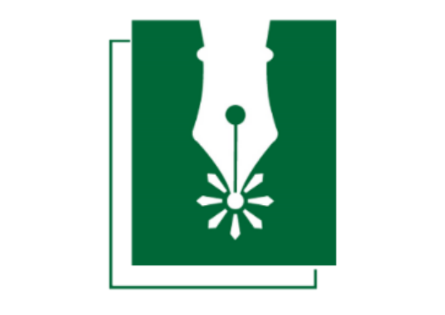Restoring the Sanctity and Dignity of Life Among Low-Risk Drug User Surrenderers
Keywords:
Sanctity and dignity of life, Drug Rehabilitation Program, Appreciative Inquiry, low-risk drug-users, Restorative JusticeAbstract
The proponents of this research developed their interests to look into every good points a community-based relapse prevention program being implemented by a particular local community among low-risk drug-users surrenderers. This included appreciating the design of the program and how it impacted the participants and the community of Barangay Salapan, San Juan City. All these being viewed from the underlying principles of restorative justice, in the pursuit of describing how the sanctity and dignity of human life is being restored using the five stages of appreciative inquiry as method of analysis. The rehabilitation program being implemented by the local community and supported by the local government provided a silver lining for the victims of the prohibited drugs. Initially, it helped redeem their lost personal sense of dignity, social respect and acceptance, and become a productive and significant individual members of their particular families and their beloved community. It was emphasized that the restoration of the sanctity and dignity of life demands greater openness, volunteerism, respect sincerity and discipline from each of the persons involved in the rehabilitation program. It was noted also that all the sectors of the local community should be united and unselfishly support the program regardless of political color or affiliation, religious background, economic interests and social biases, so that the sacredness and dignity of life which is very primal as a value will be constructively attained.
References
Brabant, K. V. (2015). Effective advising in state building and peacebuilding contexts-how: appreciative inquiry. Geneva,
International Peacebuilding Advisory Team
Byron, W. (1998). The building blocks of catholic social teaching. America
Caday, F. (2017). Causes of drug abuse among college students: The Philippine experience. Ifugao State University, Philippines. The International Journal of Social Sciences and Humanities Invention
Coghlan, A., Preskill, H. and Catsambas, T.T. An overview of appreciative inquiry in evaluation. Retrieved from http://www.rismes.it/pdf/Preskill.pdf.
Cooperrider, D. and Whitney, D. (2005). A positive revolution in change: Appreciative inquiry. Case Western Reserve University, The Taos Institute
Dangerous Drugs Board, Office of the President. (2016). Oplan Sagip, Guidelines on voluntarily surrenderer of drug users and dependents and monitoring mechanism of barangay anti-drug abuse campaigns. Board Regulation No. 4. Office of the President. Republic of the Philippines.
Gómez, M.P.M., Bracho, C.A. and Hernández, M. (2014). Appreciative inquiry, a constant in social work. Social Sciences, Science
Publihing Group. Spain
John Paul II. (1987). Solicitudo Rei Socialis. Libreria Editrice Vaticana Helliwell, J. F. (2011). Institutions as enablers of wellbeing: The
Singapore prison case study. British Columbia. University of British Columbia. International Journal of Wellbeing
Himes, K. (2001). Responses to 101 questions on social catholic teaching manwah. Paulist Press St. Columban’s Mission Society.
Mazo, G. N., (2017). Transformational rehabilitation: Communitybased intervention to end the drug menace. International Journal of Research - Granthaalayah, 5(12), 183-190. https://doi.org/10.5281/zenodo.1133854.
Morales, S.,Corpus, R. and Oliver, R. (2013). Appreciative inquiry approach on environmental stewardship on the issues of the West Philippine Sea. Polytechnic University of the Philippines. National Youth Congress 2013 of the Philippines
Mikulich, A. (2012). Catholic social thought and restorative justice. Jesuit Social Research Institute
Ploch, A. (2012). Why dignity matters: Dignity and the right (or not) to rehabilitation from international and national perspectives. New York University Journal of International Law and Politics. New York University School of Law.
Pope Francis. (2015). Laudato si. Vatican City. Leberia Editrice Vaticana.
Sakai, K.(2005). Research on the trends in drug abuse and effective measures for the treatment of the drug abusers in asian countries an analysis of innovative measures for the treatment of drug abusers. Tokyo, Japan. United Nations Asia and Far East Institute (UNAFEI)
Sanchez, Z.M. and Nappo, S.A. (2008). Religious intervention and recovery from drug addiction. Rev Saúde Pública. Universidade Federal de São Paulo. São Paulo, SP, Brasil
Sandu, A. and Damian, S. (2012). Applying appreciative inquiry principles in the restorative justice field. Romania. Lumen Publishing House.
Shuayb, M., Sharp, C., Judkins, M. and Hetherington M. (2009). Using appreciative inquiry in educational research: possibilities and limitations. Report. Slough: NFER.
Yip, P., Cheung, S.L., Tsang, S.,Tse, S., Ling, W.O., Laidler, K., Wong, P., Law, and F., Wong, L.(2011). A study on drug abuse among youths and family relationship. University of HongKong
- PDF | 152
- Abstract Views | 222
Published
How to Cite
Issue
Section
Copyright (c) 2023 Neilia Ramirez, Noel Santander, Kim Guia

This work is licensed under a Creative Commons Attribution-NonCommercial-NoDerivatives 4.0 International License.











